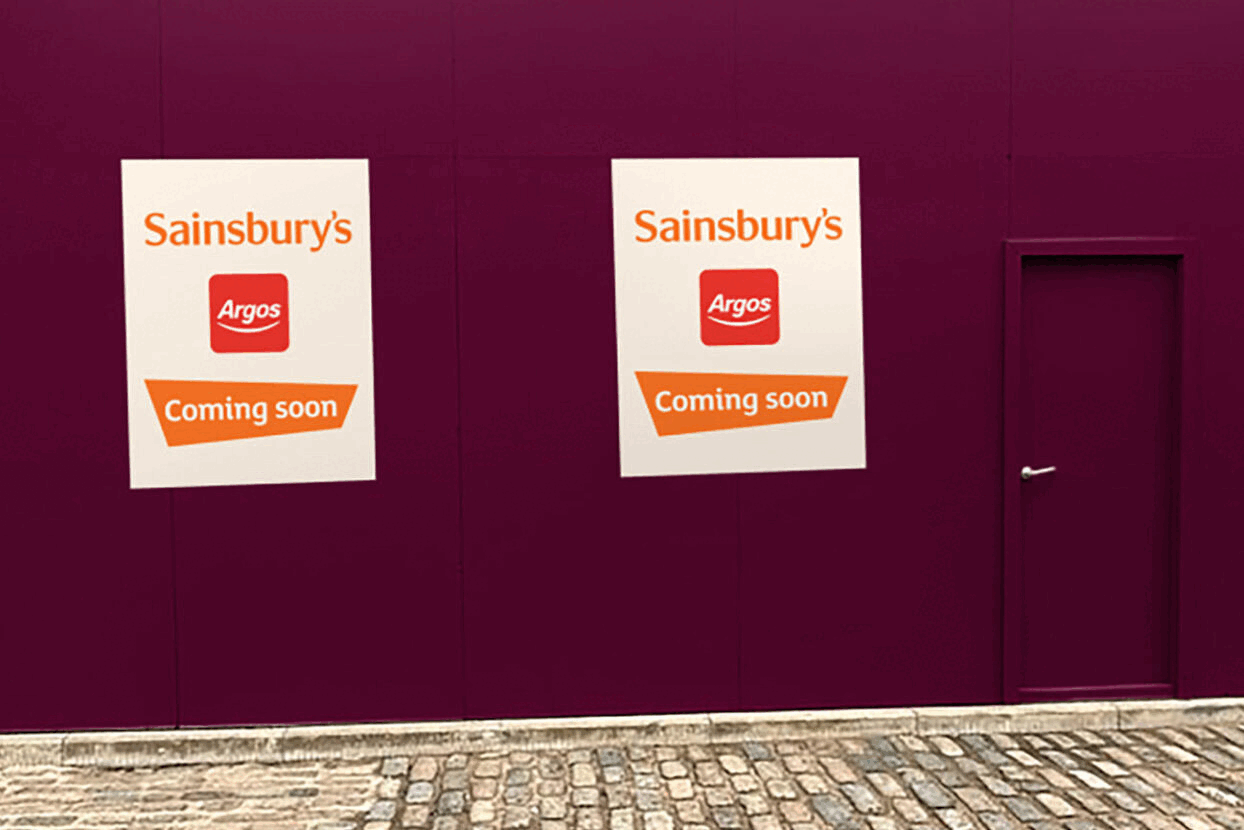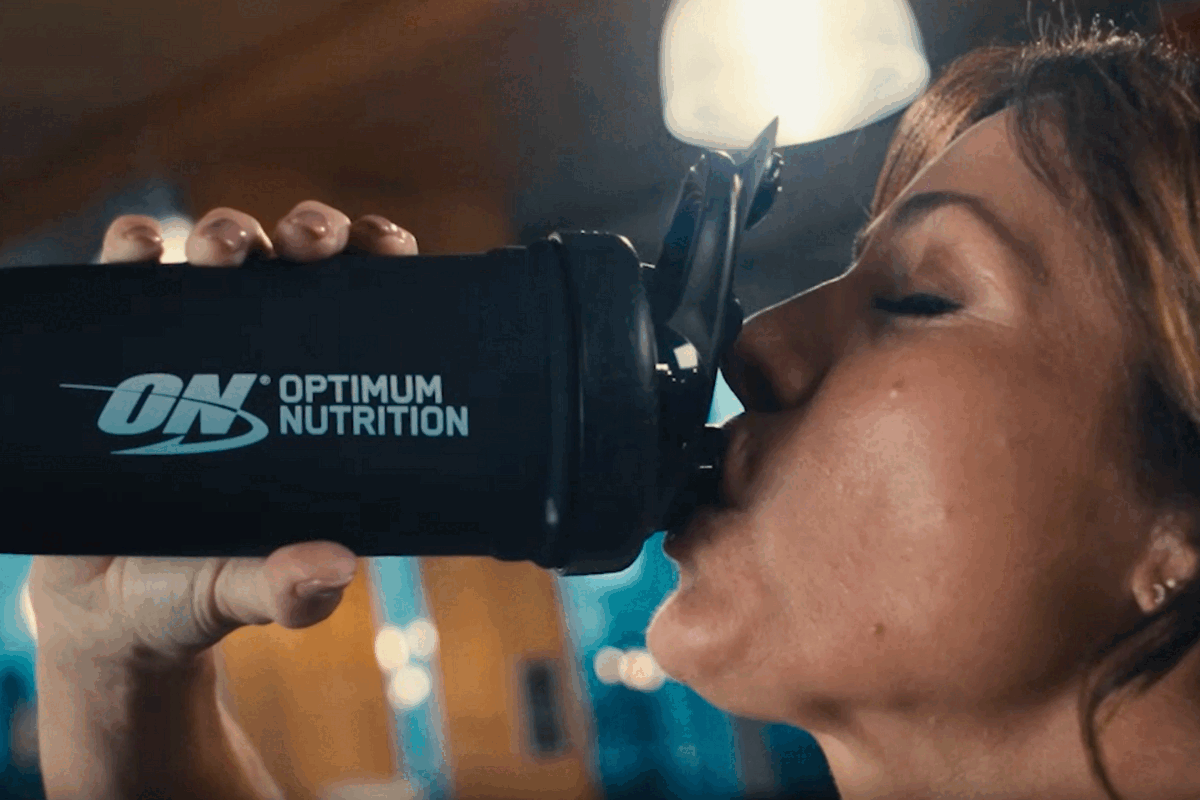Industry reacts: Q3 2019 IPA Bellwether Report
- Thursday, October 17th, 2019
- Share this article:
The latest IPA Bellwether Report showed that UK marketing budgets fell for the first time in seven years in Q3 2019 over uncertainty mainly surrounding Brexit. Here, executives from across the industry share their thoughts on the findings.

Alessandra Di Lorenzo, CEO of Forward, lastminute.com’s media company
“The uncertain political climate isn’t the only thing putting marketers – and their budgets – under pressure. From reduced consumer confidence and spending to ambitious sales targets, they’re facing a myriad of other challenges, too. In times like these, brands need performance and measurable results to ensure they’re getting the most from their spend, which is clearly why there has been a focus on digital investment.
“Used intelligently, data and digital marketing technology can allow you to execute precise and measurable campaigns quickly and efficiently. Looking ahead, it will be the players that use data in the smartest ways that win big. But, for maximum results, brands need to keep their eyes on the prize and combine campaign performance with brand building – a practice which is often de-prioritised by digital marketers. By combining the two, and focussing on ‘brand performance’, brands can dramatically increase the impact of their campaigns, and get closer to customers.”
Mike Klinkhammer, director of advertising sales EU at eBay
“The underwhelming figures released today by the IPA, show that marketers are certainly being impacted by the uncertain economic climate, with budgets naturally taking the hit.
“But it’s not just the economic landscape causing concern, rapid developments in technology mean many digital marketers are also worried about the looming threat of cookie-less advertising, and how this will impact the way we deliver relevant ads in the future. Wherever possible, brands and publishers should be looking to harness the first party data at their finger-tips, and explore how they can cut and slice it in smarter ways – in order to deliver relevant, intelligent advertising, without the need for cookies.”
“Marketers don’t need to look very far to find cookie-less targeting methods either. Contextual targeting – combined with search and display advertising – is still an incredibly valuable way to reach audiences. At eBay, as part of our cookie-less targeting offer, we’re turbo-charging contextual targeting by tying it in with new shopper intent capabilities: blending real-time contextual segments with key shopper intent signals – and powered by search algorithms. Contextual may have been simple in the past, but it’s getting increasingly intelligent – and offers a brilliant opportunity for marketers to get closer to their customers.”
Asher Gordon, head of biddable media at Tug
“It’s understandable that, in a time of low confidence, marketers are cautious about their spend. But as advertisers continue to look to optimise every penny, we’ll no doubt see digital continue to rise – whether it’s in search, display, or digital out-of-home – as technology continues to make marketing infinitely simpler and more efficient.
“Despite some numbers in the report ‘going down’ at first glance – notably in search – it’s worth noting that many of these numbers remain positive, meaning strong growth continues across the digital space.”
Gavin Stirrat, VP of partner services at OpenX
“With digital spend continuing to rise, even as wider marketing budgets fall, today’s news proves that the significance of digital markets is only continuing to grow. But as consumer attention continues to be diluted across platforms, screens, and channels, it’s more important now than ever for advertisers to make smart targeting decisions based on how their audiences are behaving online.
“And our own research – in partnership with The Harris Poll – is very clear about what those audiences are doing. Where Linear TV once reigned, for example, two thirds are now subscribing to streaming services – with 32 per cent not having cable or satellite, or looking to ditch it in the next year.
“That doesn’t mean, however, that there’s only one stop for digital marketing. In order to stay ahead in an increasingly competitive market, advertisers need to move away from a broad brush approach and make sure audiences are front of mind in every spending decision to keep targeting relevant and effective.”
Anna Forbes, UK general manager at The Trade Desk
“With advertisers’ purse strings tightening, every penny counts, so it makes sense that an increasing number of marketers are pivoting towards the digital space to get maximum value. In fact, the innovations of the past 12 months alone have made it far easier – and more rewarding – for advertisers to do just that. The growth in the digital sector, reported by both the IAB and IPA, stands as testament to the industry waking up to the power of programmatic.
Particularly notable is the sizeable growth of video, which contributed well over £1bn in the first six months of the year according to the IAB. Advertisers have long known that video is a powerful format to reach consumers, but its power is likely to grow exponentially as more and more Connected TV streaming services enter the UK market. And with UK consumers creeping ever closer to subscription fee saturation, advertising will be a key asset in unlocking new revenue for many streaming companies, further boosting an already flourishing sector of UK ad spend.”
Jem Lloyd-Williams, Mindshare UK CEO
“Unsurprisingly, the report shows a slow-down in overall media investments, due in large part to a more cautious approach across all sectors as we wait to see how Brexit plays out. Our own research shows most people feel powerless about what might happen. They are switching their focus to the climate change crisis – giving them something they feel they can positively influence. The outlook is better going into 2020 and it’s our job to ensure our clients are ready to take advantage of the inevitable new opportunities next year brings. Putting our client’s audiences at the heart of our recommendations remains our focus. Whatever the immediate effects of Brexit, understanding people’s motivations and emotions better than anyone else during next year provides a competitive advantage, and, it helps resist the temptation of looking only in the short term for returns on media investment.”
Thomas Byrne, EVP Agency Services at Merkle EMEA
“The report has revealed that, again, this quarter the industry is favouring the measurability and efficiency of internet advertising when it comes to the allocation of ad spend budget. It seems clear the industry is experiencing – and gaining an understanding of – the positive impact – that data-driven advertising in the social media space can have on both a brand awareness and market share perspective, but also on profitability and the bottom line.
“An improved online experience built on the utility and service from relevant and respectfully target messaging is driving short-term performance and developing brand affection. However, this cannot be a temporary ‘reallocation’ of budget for short-term ‘cost efficiency’ it needs to continue into Q4, 2020 and beyond in order to further develop and maintain long-term brand awareness. Efforts must also be focused on taking this people-based marketing approach further by connecting data-driven, digital campaigns to long term measurable objectives for clients. Only then will they be able to truly maximise performance and media efficiency to deliver the right message, at the right time in the consumer’s path-to-purchase journey.”
Paul Hutchison, Wavemaker UK CEO
“It may be disappointing to see that industry-wide financial prospects remain negative this quarter, but it’s an expected, and totally understandable bi-product of an unformed post-Brexit future. Advertisers are living in a challenging environment of ‘now and not yet’ – toughing out the existing and continuously changing political and economic uncertainties.
“However, as confidence in the UK economy is regained there’s a somewhat brighter future for ad spend prospects on the horizon – which is also a reflection of its value and importance to all UK businesses.
“Rash budget cuts can often cause long-term damage, we need to remember that sales are over-night, but brands are built over time. So, it’s important for companies to maintain momentum and spend money where it counts – both outcomes should be optimised to ensure they lead to the best chance of sustainable growth.
“It’s all about creating the biggest impact – and that means using customer insights and the data available to make smart choices when it comes to ad spend. Not simply pouring all investment into one channel – i.e. digital – but thinking about the broader spectrum of media assets available and the audience they reach, from TV, to social, to Out-of-Home.
“In addition, the continuing decline in forecast investment in market research is also understandable: it’s just too difficult to articulate clearly enough what the question is. However, it should also be a wake-up call for market research practitioners to rethink approaches to enable stronger and more directional support to businesses in times of uncertainty.”
Eve Lee, founder and CEO of The Digital Fairy
“It’s disappointing to see that the reasons behind the growth in on-line and social-media campaigns are simply ‘in the interest of cost efficiency’ and a ‘reallocation of budget’ and not an acknowledgement of the power or impact they have on brand awareness.
“This is especially true for those looking to attract the attention of the youth audience – specifically Generation Z. It seems that not all UK businesses have got to grips with the true value of on-line and social media-based campaigns. The idea with the new generation is that you speak with them not at them, and any approach must be authentic. This is where these channels truly come into play where impact and value are concerned.
“Brands need to be smarter and more resourceful when it comes to ad spend. There doesn’t need to be a ‘cut just simply a shift in where/how they’re spending money in order to get results and have a bigger impact on brand awareness, market share and ultimately the bottom line. As ad spend regains momentum and grows in 2020, then we would hope that the ‘reallocated budgets’ to on-line and social-media based campaigns would become ‘permanent budgets’. And these channels receive the full recognition they deserve.
“But let’s also not forget that there is also a need for an awareness that consumer hesitancy and this indecisiveness – in particular with this new generation of consumer – is not a short-term change that’s only caused by Brexit. The increasing awareness of issues such as global warming is having a huge effect on consumerism and brand competition, and this is going to have a longer-term impact on ad spend and marketing budgets.”
Matt White, VP EMEA at Quantcast
“This quarters IPA Bellwether report reflects continued Brexit uncertainty as marketers feel the squeeze on their budgets. In these challenging times, marketers need to focus on making their budgets work harder and smarter. Unsurprisingly, many brands are reallocating budgets to digital – a sensible move, given the precise targeting that it offers them.
“But marketers need to dive deeper into campaign efficiency – from optimising ad frequency and rethinking the precision of their targeting, to investing in more intelligent online tools for dynamic creative optimisation as well as getting premium inventory at the best rates.
“When budgets are being shortened, there is a tendency for marketers to move to direct response activity but its important not to lose sight of long-term goals and upper funnel activity if brands are to weather the Brexit storm.”
Steffen Svartberg, Cavai co-founder
“The results of the IPA Bellwether herald another cautious quarter for marketing spend. This is not surprising given that it has been a period of disruption with ITP 3 and 4 continuing to have an impact and reduce the number of users that can be targeted and measured. We expect to see an increase in contextual targeting, machine driven and conversational advertising. Consent driven, transparency and a greater reliance on machine learning leads to increased credibility and a flux in operating models as the industry evolves and companies need to be agile enough to pivot. Only then will we start to see more sustained growth in digital ad spend as we head into 2020.”
Jenny Stanley, founder and MD at Appetite Creative
“The report from IPA Bellwether shows that main media ad budgets were placed on hold during the third quarter and this reluctance to commit to big ticket marketing campaigns is concerning. At a time of uncertainty and minimal growth, it is essential for brands to hold their nerves and move away from ads that are unsatisfactory, unfitting and uncomfortable. The recent underwhelming performance of marketing budgets seem to be inline with underwhelming creatives and it’s time to think about the consumer and their needs. Immersive medium requires an immersive ad experience, rather than a 2D creative. As we close 2019, it is time to champion creativity if we want to improve performance and increased investment in digital advertising.”
Mattias Spetz, MD EMEA at Channel Factory
“Not only has the economic and political uncertainty led to indecisiveness and hesitancy among UK businesses, we can expect to see disruption in operating models as trust and transparency issues have led to a lack of faith in our industry. GDPR and transparency is a massive influencer for marketers, and this has clearly had an impact as there has been a contraction in expenditure in total marketing budgets in Q3 as firms tighten the reins. It is imperative that brands stand adjacent to content that reflects their brand identity and is never damaging in any way to their brand. With this in mind, the message to marketers is clear – don’t go everywhere; go where you will have the most impact.”
Paul Frampton, European president at CvE
“Sadly, the continuing uncertainty of Brexit and count down reducing to a matter of days is creating softness in the market or at least in the mindsets of what will happen in the last quarter and heading in to Q1 2020.
“As consumer confidence hovers, all marketing organisations are looking for more for less, so the importance of data is key. Digital continues to attract more of the overall budget demonstrating a bigger focus on accountability and shorter-term ROI for many businesses. We see search, social and programmatic continuing to attract bigger budgets YOY but this is being taken from elsewhere.
“Whilst other studies show the rise of investments in marketing tech and data, it isn’t hugely evident in this latest report from the IPA. Indeed, many brands are investing in building a tech stack that future proofs them for a more data driven, addressable media landscape.
“As spend consolidates more and more towards digital, we are seeing brands reviewing their marketing models, asking inevitable questions. What do they do themselves and what do they outsource? Are they accurately tying back activity to business results? How do they build for a world where third party cookies are less relevant? How do they prepare for a world where traditional broadcast channels like TV and OOH can increasingly be planned and bought leveraging data like digital?
“One thing is for sure, it’s going to be an interesting couple of months ahead.”
Ben Little, founder and director at Fearlessly Frank
“When even the IPA sounds a note of pessimism, we need to take it very seriously. Anyone in the industry knows that the appetite for marketing expenditure inside companies has been weak for a long time now. In the light of Brexit, it’s easy to brush this away as indecisiveness born of uncertainty.
“But the malaise in marketing services is far, far deeper than that. Businesses everywhere are finally facing up to the hard task of what it takes to grow relentlessly – and finding that what’s offered in response by the marketing services industry is inadequate, weak, and increasingly irrelevant in any meaningful way.
“Marketing services don’t do what they say on the tin. Bigger budgets don’t lead to growth. The game is up – growth is only available by pulling many other, different levers. The levers of strategy, innovation, investment and ingenuity. Unless the marketing services business acknowledges that and starts to think with clarity and purpose about growth and what companies are trying to achieve, then this decline will accelerate even as political uncertainty subsides.”
Damien Bennett, director of strategy at Incubeta
“The latest IPA Bellwether report shows that in uncertain economic times, advertisers are choosing to prioritise media that gives them more certainty over the return that is being delivered. The importance of digitals measurability becomes heightened as businesses seek confidence that their media budgets are being invested in the most effective areas. In addition to this digital consumption continues to increase and this is reflected in advertisers shifting greater proportions of their budgets to digital channels.”
James Briscoe, strategic advisor, and investor at Percept
“Given the economic climate, the latest IPA Bellwether report comes of no surprise. Similar to last quarters analysis there is an increase in online and social media. However, brands also face challenges online given the new regulatory environment, such as GDPR and ITP, and changes in how they operate their online channels. Specifically, the trend for brands to in-house or take more control of their digital marketing, with transparency and full visibility being on the top of many brands requirements.
“For those looking at a career in digital, the demand and options are constantly increasing, with a shortage of talent in many key areas.”
James Sleaford, managing director of DQ&A UK & IE
“Uncertainty is generating a reluctance to commit to long term budgets, but this is countered by the reality that business goes on and things arent as bad as they seem in all cases. Its no surprise, as highlighted by the latest findings from the IPA Bellwether report, that digital continues to grow in this climate when it presents marketers with the ability to activate at scale relatively speedily, whilst also providing tighter control over spend.”
Chris Rowett, performance director at Journey Further
“We are still seeing growth in spend within biddable channels, with interest in how YouTube can perform, as the adoption of the YouTube app in homes increases. This is leading to a lot of our clients moving budget from TV over to YouTube, Facebook and Programmatic in general. We are also experiencing the front end of the AI revolution in paid search, as we adopt machine learning for bidding and creative. As advertisers adopt smart solutions, they are seeing a sudden efficiency improvement, which has led to a desire to invest more in PPC. Perhaps, this is in part why businesses are not feeling the need to increase budgets to achieve their growth targets. As many advertisers work to flat budgets for 2019 with the market uncertainty, it is possible the general attitude is to move spend away from long term brand awareness channels such as TV, into the short-term performance driven channels.”
Oli Marlow-Thomas, founder & CEO of Ad-Lib Digital
“With marketing budgets continuing to struggle through 2019 it’s time for the industry to make some changes to the way it manages ad spend. One obvious budget black hole is the sunken cost of digital creative. The expensive development of creative assets across multiple digital channels and formats means costs rack up with each and every iteration. At Ad-Lib, we know that by automating the process of personalised creative, budget-conscious marketers can save vast sums on production costs, and reap a huge time saving too. With more time and money to play with, they can turn their attention to the digital ad space – an area that is showing reassuring growth into 2020 despite uncertain times.”
Ben Samuel, VP EMEA at Nielsen Marketing Effectiveness
“The continued stagnation of marketing budgets won’t come as a surprise to many marketers. But as everyone will know, if you cant drive more sales through increased marketing investment, marketers will need to find another way to grow their businesses. At Nielsen we know 25 per cent of marketing spend is still being wasted on ineffective digital tactics alone. In any business environment, marketers simply cannot afford to lose a quarter of their spend in poorly performing channels and tactics, and this is especially true in these uncertain times. It makes an even stronger case for why marketers should invest in the right tools to measure the effectiveness of campaigns, helping them better understand how to optimise performance, improve outcomes and drive their bottom line… without the need to ask for increased budgets which may not be forthcoming.”
Lisa Menaldo, The Advisory Collective co-founder
“The uncertainty around Brexit has understandably had a detrimental impact on the UK economy, with consumers delaying the purchase of bigger ticket items as a result. This is having an impact on some marketing budgets but if you take a closer look at the trend data, digital advertising continues to show growth.
“Marketeers are also continuing to diversify budgets and are driving more investment into digital channels – this is because they are able to have a more personal one-to-one dialogue with the consumer at a much lower price point, so brands get more for less.”
Christian Gladwell, global CEO at M&C Saatchi Performance
“Whilst total marketing budgets reduced slightly in Q3, almost two-thirds (64.1 per cent) of marketers reported no change in overall advertising investment and budgets continued to shift from traditional to digital. Couple these findings with the IAB UK’s half year Adspend update, which reports that total UK digital ad spend was up 13 per cent year-on-year in the first six months of 2019, driven by display (video) and search and you have a more positive outlook for digital advertising.
“While the current economic and political climate may impact ad spend, brands understanding that mobile is now more than simply a device will be key to continued digital advertising growth. With increasing touchpoints, joining the dots between all digital platforms to engage the connected consumer will become ever more relevant for brands. Addressing the connected attribution issue will be key to sustaining consumer growth and the associated digital ad spend.”
Alexander Iglesböck, Adverity CEO
“Overall the report may appear negative, however we shouldn’t overlook the small nugget of positivity, which suggests there is budget growth (+11.1 per cent) in online marketing spend. It is great to see an advantageous shift towards digital marketing, with organisations redirecting their marketing budgets towards new data tools and investing in data driven marketing.
“To drive successful and engaging marketing campaigns, marketers need to embrace advanced analytical tools, as well as artificial intelligence, to derive the best results from their data. The increased use of augmented analytics and intelligence platforms is helping marketers enhance their campaign success by using data to obtain real-time marketing insights, allowing for in-flight optimisation. Moving into the final quarter of the year I would expect to see increased investment in the online and digital marketing sectors, as marketers continue to comprehend data’s true value and power.”
Jeff Pfefferkorn, head of UK sales at MainAd
“The cautious approach to marketing budgets in the UK in the last quarter comes as no surprise in the current climate of uncertainty; but brands will need to be bolder and diversify their strategies once the political turmoil is finally resolved if they want to stand out from the crowd.
“For example, the continuing shift towards digital, particularly when it comes to advertising spend, highlights the need for marketers to consider data-driven campaigns using dynamic creative across a variety of channels, including in-app and digital video, to reach the right audience. The move towards social media advertising also presents a different opportunity for brands to engage with users, and suggests that many marketers are following the DTC ecommerce model and interacting in a more direct and personal way with consumers.”
Philip Acton, UK country manager, Adform
“These results reflect a natural element of uncertainty stemming from the current political and economic tensions at play in the UK. We actually see a strong opportunity for the market to focus on greater collaboration, and to use that as a springboard for industry-wide innovation. The past year has definitely seen a heavy increase in focus on transparency among budget holders which has had a knock-on effect impacting when and where those budgets are allocated.
“The digital advertising industry must provide both brands and publishers with integrated advertising solutions that ensure accountability throughout the purchase chain. This includes adoption of new neutral standards that support the handling of sensitive data whilst striking a healthy balance between delivering value and a better experience for the end consumer. Let’s not forget that programmatic and digital offer great ROI so it’s always a great place to invest during any downturn.
“If we build our approach like this, marketers will have added confidence to invest their budgets, safe in the knowledge that it is fully accountable to those above them while the market waits to see how the current mixed signals and uncertainty play out.”
Bill Swanson, VP EMEA at Telaria
“In an overall uncertain market, it’s encouraging, but not surprising, to see that only digital marketing budgets have reported an increase. As consumers continue to shift away from traditional/linear television to viewing on multiple platforms, the industry recognises that this is a priority focus for ad spend.
“This is also reflected in the IAB UK’s half year Adspend update, with UK digital ad spend up 13 per cent year-on-year. With the correct approach to monetisation and with budgets in the right place, marketers can seize the benefits this sector will continue to bring.”
Andy Ashley, international marketing director at Digital Element
“The results of this quarter’s report are to be expected, especially given the political climate and a resounding hesitancy across the industry due to an uncertain future, post Brexit.
“But what we can focus in on are the positives, and the push to really optimise available budgets for campaigns, particularly across online and social media to achieve maximum performance. The development of online tools and data-driven campaigns are highlighted in the report, and are crucial to drive success and prepare for the potential challenges ahead. The key to this is a continued attention on efficiency and high-quality data – which is granular and up-to-date – to provide quality insights to justify spend and, ultimately, enhance the consumer experience which will bring wider benefits to businesses.”
John Wittesaele, CEO EMEA at Xaxis
“The results reinforce much of what we saw in Q2 2019, with total marketing budgets undergoing a period of stasis in response to political and economic uncertainties. But the gloomy top line figures obscure an impressive, and consistent, increase in online spend. As digital retains its pole position for the third quarter in a row, the pivot to programmatic advertising looks set to continue unabated.
“When trying to identify the driving factors behind bigger digital advertising budgets, we can see the wide range of newly available tools designed to help meet marketing objectives more effectively and efficiently. These encompass AI techniques to streamline the media buying process and optimisation solutions that enable ad campaigns to be measured against custom marketing metrics specially designed according to desired business outcomes.”
Christopher Hogg, managing director EMEA at Lotame
“Firms readjusting budgets to allow sustained growth in digital marketing might be an indication that marketers are embracing data-driven strategies to prove ROI. Those activities that arent showing genuine gains are being cut. Its time for marketers to double down on high quality data, and the partners who can help them connect their disparate data resources and activate their data solutions to acquire and engage their audiences more effectively.”
Nickolas Rekeda, MGID CMO
“Flatlining marketing spends due to the obvious political and economic uncertainty in the UK are certainly disappointing but not unexpected. This demonstrates that advertisers should focus their efforts on efficient ad formats, such as native, which help to produce better user engagement, results in less adblocking, and provides a valuable return on investment.
“Ahead of the predicted increase in growth for 2020, marketers should refocus their current advertising strategies to target audiences better through personalisation and monetisation. This will help to rebuild trust and confidence in consumer spending to achieve the best result possible for brands.”
Andrew Buckman, COO at Sublime
“Despite overall budget cuts, it is encouraging to see marketers continuing to invest in the digital marketing space, highlighting the benefit of interacting with consumers in such a receptive environment. The industry needs to continue putting the consumer first, by utilising today’s advanced technologies to provide engaging and non-intrusive campaigns.
“We can’t avoid acknowledging the impact of Brexit on marketing budgets and until the UK has officially departed from the European Union, it is likely economic and political uncertainty will prevail. However, once the dust has settled and the economy stabilises, we can expect marketing budgets to resume increasing steadily.”
Simon Thorne, UK country director at Flashtalking
“To assure the future growth of digital ad spend, industry players should collaborate further to fix the supply chain and offer full transparency, efficiency and choice. Doing this will not only rebuild trust between advertising partners, but continue to incentivise investment in effective media platforms as well.”
Ruth Manielevitch, VP global business development at Taptica
“Although the latest IPA Bellwether report spells trying times ahead for UK advertising, our industry is adaptive and is sure to withstand some of the toughest economic and political setbacks.
“Marketers may be keeping tight control of budgets at the moment, but it is clear that there is still a need to invest in advertising. These budgets are being reallocated to online and social media, showing these are reliable formats for marketers and return effective results without excessive spending.
“As we enter the new year, advertisers will have more clarity over the economic landscape, meaning we will be able to look forward to exciting technological developments such as 5G. With increased load speeds and faster connections, advertisers will be able to experiment with the creative versatility that this brings, making online ad formats even more interactive, engaging and relevant for consumers than ever before.”
Mark Inskip, CEO UK and Ireland at Kantar – media division
“Though the wider decline in marketing budgets – and pessimistic outlook – is food for thought, it is promising to see continued strong growth in the digital space.
“As the report highlights, sustaining digital growth during a particularly uncertain economic period reflects the hard work going on across the ecosystem to adopt the very best technology and continue producing the most engaging and informative content for consumers.
“Moving forwards however, continued growth in the digital space will mean maximising the impact of every single pound by targeting the right audiences at a place and time that works for them. With nearly three-quarters of UK consumers surveyed in our 2019 DIMENSION report admitting they find advertising too repetitive, advertisers and brands alike need to carefully monitor and measure every stage of their campaigns, holistically, across all platforms and media to ensure continued success.”
Lou Weiss, chief marketing officer at Shutterstock
“It’s unsurprising to see the shift towards digital marketing continuing to grow. Consumers are now the trend-makers as brands and businesses are pivoting their marketing strategy based on customer-driven insights. These customers are found on the internet and on social media – underpinning the sustained evolution into the digital space for marketers. It’s encouraging to see increasingly sophisticated tactics like content syndication, native advertising, paid social, personalization, look-alike modelling and paid and organic search be deployed by businesses of all sizes. Intuitive user interfaces along with quality web-based how-to content have democratized techniques that were once only accessible to the largest brands and agencies. The playing field has, to an extent, been levelled.”
Ali MacCallum, Kinetic UK CEO
“As the latest IPA Bellwether report has shown, marketing spend deployment is becoming increasingly characterised by short term thinking, with marketers directing their budgets towards the internet and social media. It is therefore incumbent upon the OOH industry to demonstrate how we can better deliver faster access to the market via data driven methods near real time trading systems, without losing brand strength, and to meet shorter term business objectives.
“Kinetic’s Commuter Commerce study recently demonstrated that c£24bn of mobile sales are generated on the commute, with over 70 per cent of purchase influenced by OOH. The roll out of 5G in 2020 will only accelerate the ability of OOH and mobile to articulate the need to change the behaviours we inevitably see in periods of turbulence such as these.”
Chris Daplyn, Mirum UK CEO
“Amidst political and consumer uncertainty, we’ve seen marketing budgets reduce for the first time in seven years – something we will all need to be conscious of. As budgets tighten, brands and marketers are going to need to flex, adapt and innovate to find new ways to reach audiences in smarter ways.”
“As a digital agency, we sometimes feel these budget cuts most keenly, but that’s not been the case this year. The need to react and reconfigure marketing plans has meant that budgets are shifting to digital channels. At the same time, the opportunity to create campaigns that leverage every channel from inception favours digital thinking.”
“Change can be difficult. But brands and agencies have to create work that succeeds in modern culture. This isn’t throwing everything away, but rather, bringing new perspectives to existing challenges to get a different result.”
















